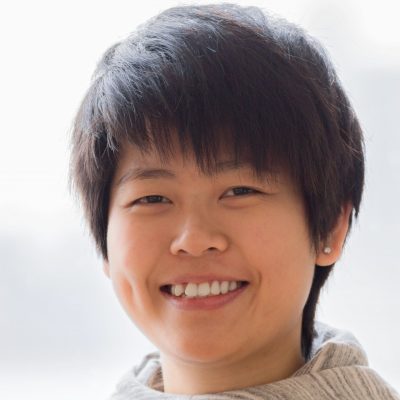Student Spotlight: T.K. Daisy Leung

August 2, 2019
T.K. Daisy Leung is a doctoral student in astronomy and space sciences from Hong Kong. She chose to attend Cornell after completing her bachelor’s degree at the University of California, Berkeley for its opportunities and location.
What is your area of research and why is it important?
My research focuses on understanding the properties and environment in which natal stars are born in galaxies at early cosmic epochs after the Big Bang and how they have continued to evolve to the present-day universe under the influence of different astrophysical processes. The universe is very mysterious and the pursuit to understand it is fundamental to the intellectual curiosity of mankind.
If these early galaxies didn’t exist, the universe we see today would be very different. So essentially, it allows us to think about “How did we get here?”
What are the larger implications of this research?
By leveraging technological advancement in building new observing facilities and state-of-the-art numerical simulations, we are beginning to unveil the nature of the first galaxies and how stars formed in early times. In some sense, it’s like archaeology, but to understand something bigger than us.
We now know that most of the stars in the universe were formed about 10 billion years ago. By studying the properties of the gaseous materials in early galaxies, we can infer the composition of stars, how their formation affected the dynamics and thermo-chemistry of various chemical species in the universe, and how often galaxies merged with one another to create starburst. These processes are essential to giving rise to the structures we see in the universe.
What inspired you to choose this field of study?
I have always been fascinated by the universe we live in, by all the pretty images telescopes have obtained and, yet, how little we actually understand it.
Where did you travel with your Graduate School Conference Travel Grant?
The grant constitutes partial funding for me to attend a symposium in Portugal organized by the International Astronomical Union.
How important was obtaining this grant for your professional development?
Attending an international conference has enabled me to disseminate my research findings to a bigger group of scientists from around the world and engage in discussions with a broader group of audiences.
What are your hobbies or interests outside of your research or scholarship?
Outside of work, I do a lot of landscape and night photography while hiking in the mountains and meeting wildlife animals. I love to read about human cognitive behaviors, travel, and spend time with the locals to learn about different cultures.
Why did you choose Cornell to pursue your degree?
I was attracted to Cornell mainly because of the opportunities I saw in advancing my academic career and because I would be able to enjoy the quiet and close-to-nature learning environment in the countryside, having spent my entire life living in major cities.
